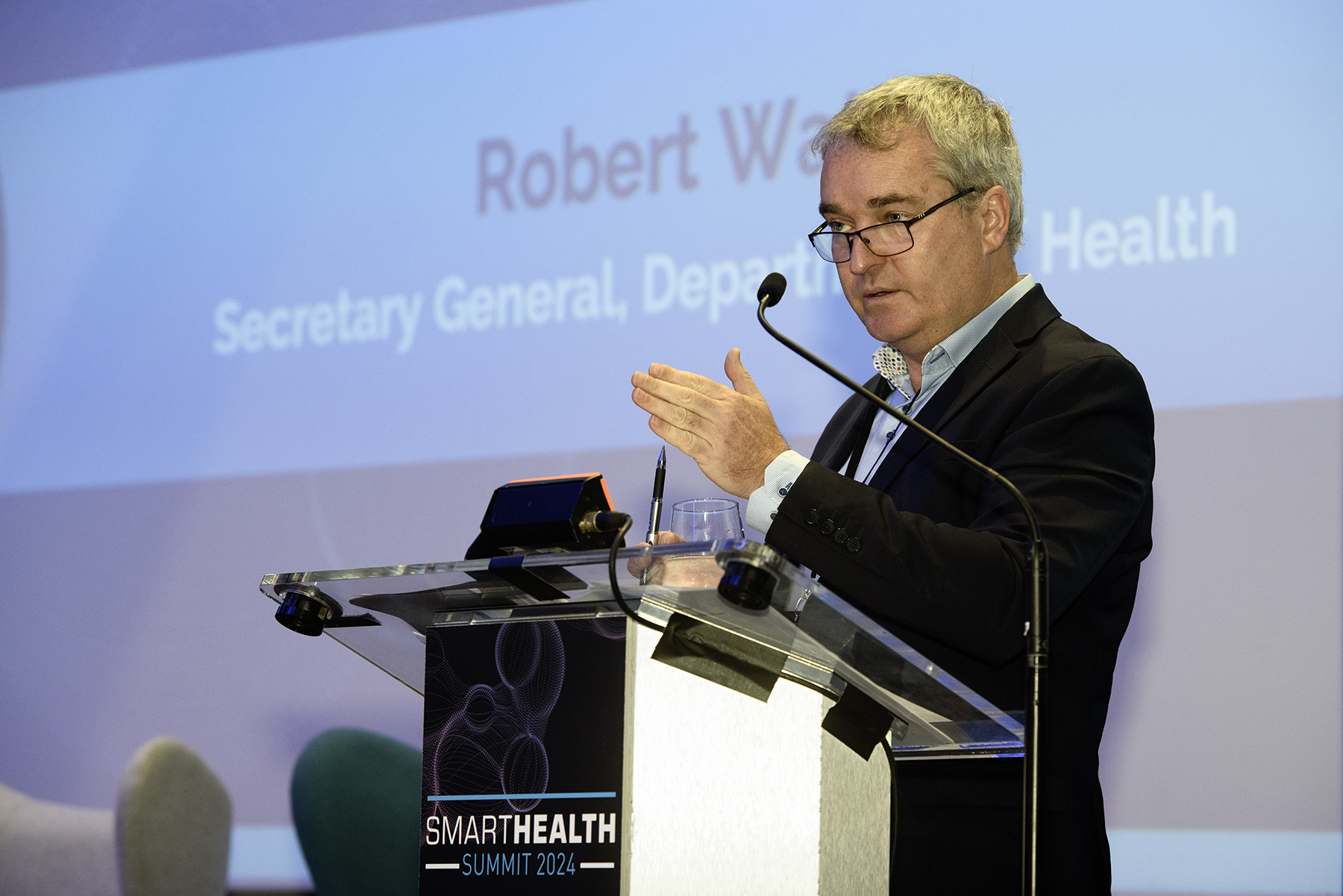The tendering process for a national digital shared care record (SCR) will begin in a matter of months, according to the Department of Health secretary general, Robert Watt.
Speaking at the Smart Health Summit in Dublin earlier this week, Mr Watt said he expects the SCR to go to tender at the end of the year. While he did not elaborate on the specific requirements, he pointed to London, Denmark and the Netherlands as examples of what might be appropriate for Ireland.
The cost of the project remains to be determined. Mr Watt said the cost will largely be determined by the market.
“We will spec out what we want and the market will then be able to tell us how long it will take and the cost,” he said.
“The capital costs are important and nobody knows what the number is until the tendering process is complete but what’s equally important as part of any debate on Irish public policy is what are the benefits of that investment. We need to discuss that equally as we talk about costs.
“For us to be able to bring together records of the interaction citizens have with their GP, community [care provider] and hospital, and each of the care practitioners can see exactly what care they have had already, will be revolutionary.
“That shared cleared record will really make an enormous difference, we believe, in terms of this digital journey.”
The SCR is the second step in implementing a national electronic health record (EHR) after the go-live of the HSE app, which is expected before the end of the year.
The app will initially be rolled out to women will start with a function to allow people store their medical card and will also include public hospital appointments for maternity services, vaccinations, and a list of medications.
Mr Watt said work is progressing on the roll-out of the national EHR, with individual EHR systems currently used at the maternity hospitals, St James’s Hospital, the Mater Hospital, the National Rehabilitation Hospital and the National Forensic Mental Health Service Hospital.
Preparations are also underway to roll out an €87m EHR from Epic into the new National Children’s Hospital, which will be fully digitally enabled.
Going forward, the national EHR will be implemented on a regional basis, starting with one large acute model 4 hospital in each region, and will gradually be scaled up across each regional health network, he said.
“We have to do this,” Mr Watt said. “There’s no doubt about it, and we’re going to have to find the upfront investment.
“When I joined the Department of Finance in the early ‘90s we were talking about this demographic change, the pensions time bomb. It has arrived. We’re seeing the demand for health services go up three to four per cent a year.
“If it goes up by four per cent every year, then every 18 years the system doubles in size. Are we going to have €48 billion expenditure? Are we going to have 600,000 people working in the system? Of course we’re not. We’re not going to be able to. We’re going to have to reform to deal with this demand.
“When it comes to many areas in healthcare, we are as good as other countries but when it comes to this area we’re not, and we have to set ourselves the ambition that we are going to be as good as the top countries in the OECD within the next five to 10 years, and I have no doubt that we can do it.”





